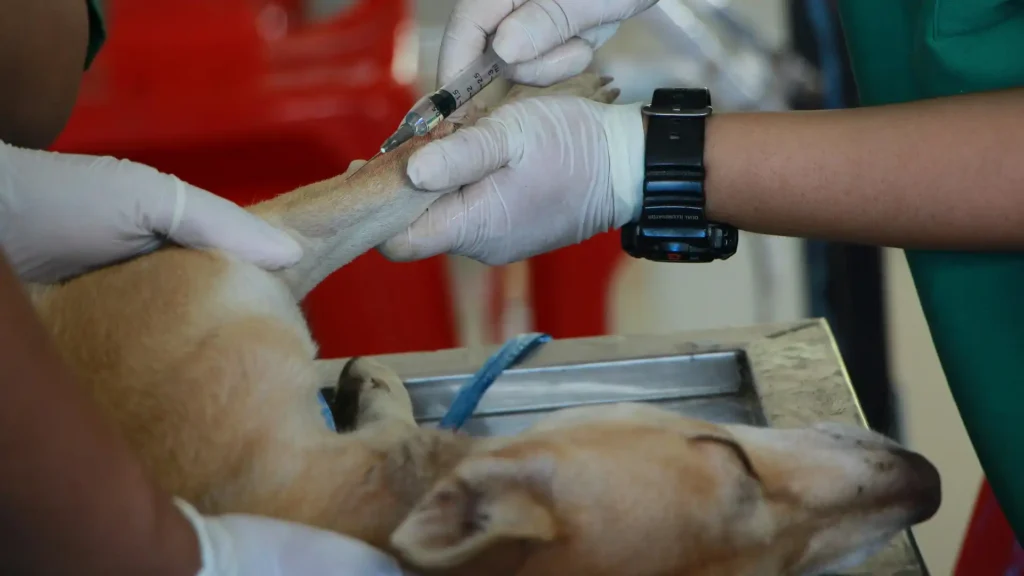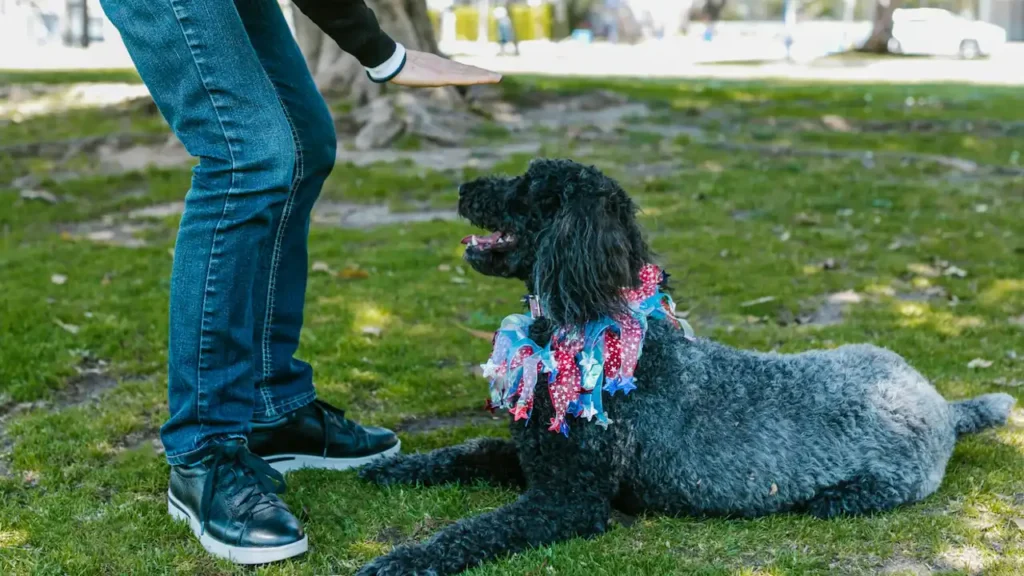As pet parents, ensuring that our dogs stay healthy and protected is one of our top priorities. One of the most effective ways to protect your furry friend from dangerous diseases is through regular vaccinations. In this article, we’ll explain the importance of vaccinations, the types of vaccines your dog may need, and how to stay on top of their vaccination schedule.
Why Are Vaccinations Important for Dogs?
Vaccinations are essential because they help your dog build immunity against potentially deadly diseases. Just like humans, dogs can catch infections from viruses and bacteria, but vaccines can prevent many of these diseases from causing harm. Some diseases, such as rabies or distemper, can even be fatal if left untreated. By keeping your dog up to date with their vaccinations, you are taking proactive steps to ensure their health and well-being.
Core vs. Non-Core Vaccines: What’s the Difference?
Before discussing which vaccines your dog needs, it’s important to understand that vaccines are divided into two categories: core and non-core.
Core vaccines are essential for every dog, regardless of where they live or what activities they do. These vaccines protect against the most common and dangerous diseases.
Non-core vaccines are given depending on your dog’s lifestyle, environment, and geographic location. Your veterinarian will decide if these are necessary for your dog.
Common Core Vaccines for Dogs
Rabies Vaccine
- Why it’s important: Rabies is a fatal disease that can affect both animals and humans. It’s usually transmitted through the bite of an infected animal.
- When to get it: Puppies usually receive their first rabies vaccine at around 12 to 16 weeks, with boosters given every 1 to 3 years depending on local laws and the type of vaccine.
Distemper Vaccine
- Why it’s important: Distemper is a serious viral disease that affects a dog’s respiratory, gastrointestinal, and nervous systems.
- When to get it: Puppies typically receive this vaccine as part of a combination shot called DHPP (Distemper, Hepatitis, Parvovirus, and Parainfluenza) starting at 6 to 8 weeks old, with boosters every 1 to 3 years.
Parvovirus Vaccine
- Why it’s important: Parvovirus is a highly contagious virus that causes severe gastrointestinal illness in dogs. Puppies are particularly vulnerable.
- When to get it: Like the distemper vaccine, parvovirus is included in the DHPP vaccine, starting at 6 to 8 weeks of age, with boosters given as your dog grows.
Adenovirus (Hepatitis) Vaccine
- Why it’s important: This vaccine protects against canine hepatitis, which affects the liver and can be fatal if not treated.
- When to get it: Part of the DHPP vaccine, given to puppies starting at 6 to 8 weeks, with boosters throughout adulthood.
Parainfluenza Vaccine
- Why it’s important: This vaccine protects against a respiratory virus that can lead to kennel cough, a highly contagious condition.
- When to get it: Included in the DHPP shot, with booster doses as necessary.
Non-Core Vaccines for Dogs
Your vet may recommend non-core vaccines based on your dog’s risk factors. Some common non-core vaccines include:
- Bordetella (for kennel cough)
- Lyme disease (if your dog spends time in areas with ticks)
- Leptospirosis (a bacterial infection)
- Canine Influenza (especially for dogs that interact with other dogs frequently)
Discussing your dog’s lifestyle with your veterinarian will help you determine which non-core vaccines are appropriate.
Puppy Vaccination Schedule
Puppies are most vulnerable in their early months, so getting them vaccinated on time is crucial. Here’s a typical vaccination schedule for a puppy:
6 to 8 weeks: First DHPP (Distemper, Hepatitis, Parvovirus, Parainfluenza) vaccine.
10 to 12 weeks: Second DHPP vaccine, first Bordetella (if needed).
14 to 16 weeks: Third DHPP vaccine, first rabies vaccine.
16 to 18 weeks: Final DHPP booster.
12 months: First booster for DHPP and rabies.
Your vet will guide you through the schedule and make adjustments if necessary.
Adult Dog Vaccination Schedule
After the puppy phase, dogs need regular booster shots to keep their immunity strong. The typical vaccination schedule for adult dogs includes:
Annual or Triennial Boosters: Depending on the vaccine type, your vet will recommend boosters every 1 to 3 years.
Rabies: Often required annually or every 3 years, depending on local regulations and the vaccine used.
Tips for Keeping Track of Vaccinations
- Create a Pet Vaccination Calendar: Write down all vaccination dates and upcoming appointments. Set reminders for booster shots.
- Keep Records: Keep your dog’s vaccination records in a safe place. This is important for travel, boarding, or daycare.
- Regular Vet Visits: Schedule regular vet check-ups to ensure your dog’s health is on track and they receive all needed vaccines.
- Consult with Your Vet: If you’re ever unsure about what vaccinations your dog needs, your vet is the best resource. They’ll take your dog’s age, lifestyle, and health history into consideration.
Vaccinating your dog is one of the most important things you can do to protect their health. Whether they are a playful puppy or a loyal adult dog, staying on top of vaccinations will give them the best chance at a long and healthy life. Always consult with your veterinarian to make the best vaccination choices for your dog, and remember: prevention is always better than treatment!
By following a regular vaccination schedule, you can help ensure that your dog remains protected from dangerous diseases, so you can enjoy many happy years together.
Note: Always check with your veterinarian for the most accurate and personalized advice for your dog’s vaccination needs.




